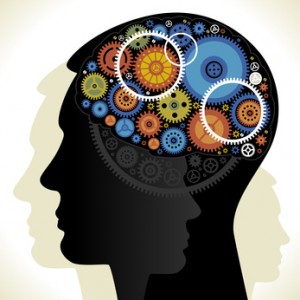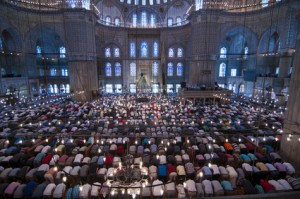 The field of neuroscience is booming. New discoveries emerge daily, and given the overwhelming complexity of the brain, many profound and important discoveries surely await. This creates a furor of research, but it also encourages over-reaching generalizations. People are quick to offer up interpretations about what all these new discoveries mean for our daily lives, for our religiosity, our relationships, our work, our health… The brain and the mind are so intrinsic to who we are, and the research is so fascinating, that it’s hard to resist making these leaps of interpretation. As a result, we see a slew of books and articles describing religion in terms of the brain, or vice-versa. But, all too often, these works are philosophical speculation with a scientific façade.
The field of neuroscience is booming. New discoveries emerge daily, and given the overwhelming complexity of the brain, many profound and important discoveries surely await. This creates a furor of research, but it also encourages over-reaching generalizations. People are quick to offer up interpretations about what all these new discoveries mean for our daily lives, for our religiosity, our relationships, our work, our health… The brain and the mind are so intrinsic to who we are, and the research is so fascinating, that it’s hard to resist making these leaps of interpretation. As a result, we see a slew of books and articles describing religion in terms of the brain, or vice-versa. But, all too often, these works are philosophical speculation with a scientific façade.
Last week the New York Times columnist David Brooks critiqued the tendency to overextend these discoveries, by describing the difficulties faced in exploring the brain. But in the end, he just returned to his philosophical camp by proclaiming, in opposition to most neuroscientists, that “The brain is not the mind.” Okay, that’s fine to say and true to what most of us feel, but it does little to unearth the real richness of the problem: if the brain is not the mind, then how are the two interacting? For a deep and quick overview of the mind-brain problem, see this lecture (if you’re worried about time, the relevant section is only six minutes long, starting at 9:27).
Continue reading →
![]() After a couple of weeks talking about Isaac Asimov, and how cool he is, the hope and dangers of neuroscience, and the humanities (whew!), I’m back to statistics on religion. This time, I’m looking at the Association of Religion Data Archives (ARDA), which is like a large warehouse full of information about religion. It’d take years to really explore this site. For example, they have stats on thirty different branches of the Pentecostal Church in the US, which is one of twenty Christian denominations in the US, which is one of 196 nations in the world. Like I said, it’d take a while to explore it all.
After a couple of weeks talking about Isaac Asimov, and how cool he is, the hope and dangers of neuroscience, and the humanities (whew!), I’m back to statistics on religion. This time, I’m looking at the Association of Religion Data Archives (ARDA), which is like a large warehouse full of information about religion. It’d take years to really explore this site. For example, they have stats on thirty different branches of the Pentecostal Church in the US, which is one of twenty Christian denominations in the US, which is one of 196 nations in the world. Like I said, it’d take a while to explore it all.


